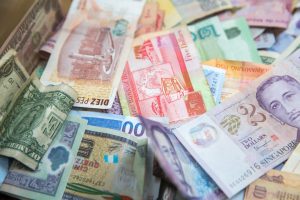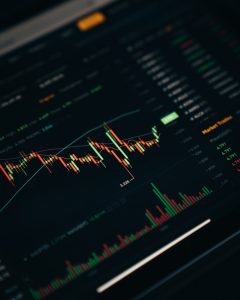Foreign exchange (forex) trading has become an integral and lucrative part of modern banking. Banks trade forex for various reasons, including earning profits, managing risks, meeting regulatory requirements, and providing services to their clients. In this article, we will explore why banks trade forex and how it benefits them.
Forex trading involves buying or selling currencies with the aim of making a profit from the price movements. The forex market is the largest and most liquid financial market in the world, with an average daily turnover of around $6.6 trillion. Banks are the primary participants in the forex market, accounting for more than half of the daily trading volume. But why do banks trade forex? Let’s look at some of the reasons.
Earning Profits
The primary reason why banks trade forex is to earn profits. Banks have a vast network of branches and clients across the world, which enables them to access multiple currencies and trade them at different times. They use their expertise, knowledge, and technology to analyze the market trends, identify the opportunities, and execute trades that generate profits.
Banks earn profits from forex trading in various ways. They make money from the spread, which is the difference between the buying and selling price of a currency pair. The spread is the primary source of revenue for banks that act as market makers or liquidity providers. Banks also earn profits from the interest rate differential, which is the difference between the interest rates of two currencies. They can earn interest on the currency they hold and pay interest on the currency they borrow.
Managing Risks
Forex trading is not just about earning profits; it also involves managing risks. Banks trade forex to hedge their currency exposures and mitigate the risks associated with their international operations. For instance, if a bank has a loan portfolio denominated in a foreign currency, it may face the risk of currency fluctuations. To reduce this risk, the bank can use forex trading to hedge its exposure by taking a position in the opposite direction of the loan currency.
Similarly, if a bank has a client who needs to make a payment in a foreign currency, the bank can use forex trading to manage the currency risk associated with the transaction. By buying or selling the required currency in advance, the bank can lock in the exchange rate and ensure that the client’s payment is made without any risk of currency fluctuations.
Meeting Regulatory Requirements
Banks trade forex to comply with regulatory requirements. Banks are required to maintain a certain level of liquidity and capitalization to ensure their stability and solvency. Forex trading can help banks meet these requirements by generating profits and improving their balance sheet. Additionally, banks are required to report their forex trades to regulatory authorities, which helps in monitoring and controlling the forex market.
Providing Services to Clients
Finally, banks trade forex to provide services to their clients. Banks offer a range of forex services to their clients, including currency conversion, hedging, and trading. By trading forex, banks can provide their clients with access to multiple currencies, competitive exchange rates, and customized hedging solutions. This helps the clients to manage their international operations and reduce their currency risks.
Conclusion
In conclusion, forex trading has become an integral part of modern banking. Banks trade forex for various reasons, including earning profits, managing risks, meeting regulatory requirements, and providing services to their clients. Forex trading enables banks to access multiple currencies, analyze market trends, and execute trades that generate profits. It also helps them to manage currency risks, comply with regulatory requirements, and provide customized services to their clients. Overall, forex trading is a crucial component of the banking industry, and its significance is only expected to increase in the future.





